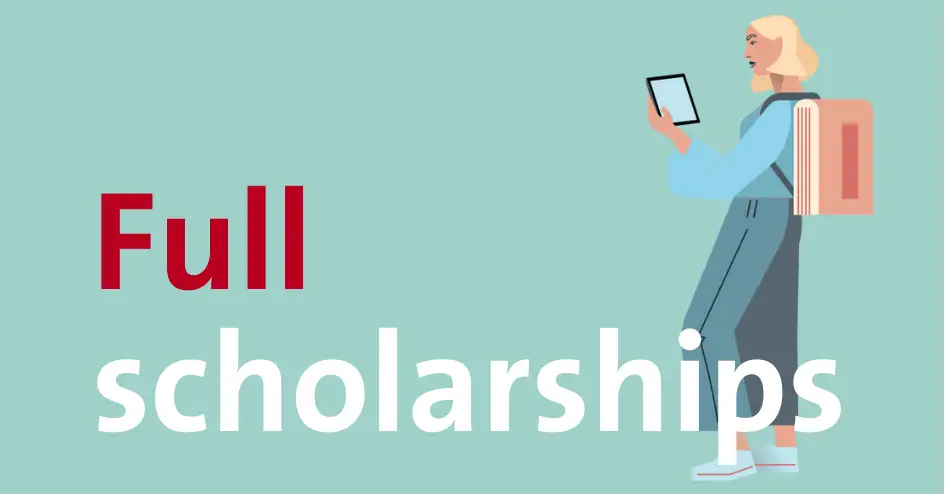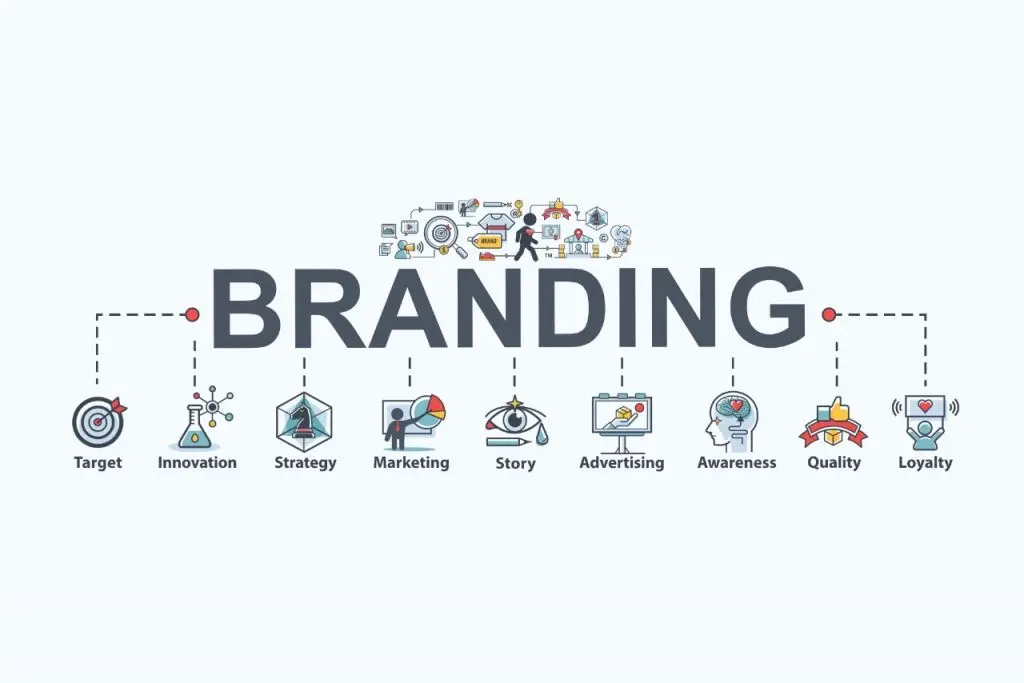For many students, studying abroad has been a life-defining period of their education providing them with access to top-quality universities and programs, worldwide networking opportunities as well as an experience in a completely foreign culture. The expense of going to college out of the nation may leave many pupils looking for a student visa, together with other financial pressures. Thankfully, full funding scholarships are here to assist students with tuition fees, day-to-day living expenses and travel costs etc. So in this post we aim to guide you step by step on how to search your right scholarship and apply for it, thus making overseas studies possible.
Before you even get started looking for scholarships, make sure to identify your career and academic goals. A good deal of scholarships are tailored to the area of study, potential career routes or personal qualifications. Once you determine the answer to this question, it will make sure that when looking for scholarships and grants online it is only ones which suit your background as well as what are in line with your future plans.
Start by asking yourself-
Also Read
- What is my future career?
- What are the best degrees to earn for these goals?
- Where in the world do i want to go for my studies?
However, Be sure to research scholarships in you field In science or technology, etc. started scholarships like STEM grants
Find scholarships
First things first, now that you know what you want to study and where it fits into your future career plan is for a scholarship don’t apply until high school junior. Opportunities come in the form of government funding and university scholarships as well as through private foundations, so take advantage.
Types of Scholarships:
Govt Scholarships: These are scholarships provided by the government to help foreign students (e.g, Fulbright Program in USA, Chevening Scholarships in UK).
Scholarships in Universities: One of the most common form to provide scholarships for international students is through fully funded university sponsored scholarships(e.g., Clarendon Scholarship by Oxford University).
Many private foundations Many organizations, charities give scholarships to students having specified backgrounds or interested in academics (e.g., Gates Cambridge Scholarship)
Country-specific Scholarships: Most of the scholarships are designed for scholars from developing countries or even specific regions, hence this type may be ideal (e.g. DAAD Scholarship which is meant to sponsor students who want to study in Germany)
Where to Look:
University Websites: Look at the scholarship and financial aid sections of university websites you are interested in.
Scholarship Databases: Sites Like Scholarships Good places to search and filter scholarships by country, field of study or degree level are scholarship portal.
Regional Government Web Site: Visit your province government website for international scholarships and exchange programs.
The nuts & bolts of scholarships
After you have discovered scholarships that are relevant to your goals, look at eligibility criteria and any special requirements for each scholarship. Sure, every scholarship is going to be different. They will all have their own criteria—everything from competitiveness, a specific talent or ability that you possess (e., academic achievement), community service/leadership potential etc.—and financial need can often play a role.
Common Eligibility Criteria:
- Academics: You may need to have a high GPA or be top of the class.
- Leadership Skills: Scholarships also will be looking for students who have shown leadership qualities at school or in their community.
- Course: Many scholarships are offered for particular courses such as Healthcare, Engineering or Social Sciences.
- Need Based: Scholarship that is based on the amount of money a family has or makes.
- Restricted Geographical Areas: Certain scholarships are limited to applicants from particular nations or territories.
- Pro-tip: Apply (AND be present) if you think that this is an environment where you can contribute effectively toward your goals and meet the minimum qualifications, but do not wait until all of those bells/whistles appear to be falling into line; note deadlines…..atisfy.
Get your application documents ready
Now, since you have located a scholarship that is right for you and which may help fulfil your career goals, it’s time to put yourself through the paces. To get scholarships, you need to provide a lot of documents with details about your qualifications as per the eligibility requirements. Gather these materials early so they are not the stressors that come up last minute.
Common Application Materials:
- Academic transcripts: to demonstrate your academic background, you must submit your official university or college transcript.
- Letters of Recommendation: Request letters from professors, employers or mentors who will be able to speak to your capabilities as a student, leader or employee.
- Statement of Purpose (SOP) : An SOP is a dazzling essay that enlists your career visions, enthusiasm to study abroad and accordingly explains how the Zell scholarship will help you catch them all.
- Résumé or Curriculum Vitae- Be sure to indicate your educational history, work experience, activities in college and any special acknowledgements you have received.
- Language Test Score: If you are applying for a program in another language, some programs may ask you to submit proof (e.g. TOEFL or IELTS).
- Financial Records: Many scholarships must see financial need through bank statements or parental incomes.
Pro Tip: Customize your materials to each scholarship by mentioning accomplishments and experiences that line up with the specific requirements of the application. An ordinary application will be less competitive.
How to get a Scholarship
Your scholarship application essay or personal statement is by far one of your most important pieces. Use this as your way of showing the person outside of your scores and resume. This is where you get to tell them why they should open their wallets and give you money, as well as how the scholarship will help you progress academicallyAuthored By (or in this case about) Mr. GrantCareer HelperNoticr Research EditorWriting MechanicIssa been writin’ on & off ’bout a year; rightful student of etymology.”
How to make a Scholarship Essay stand out:
Write about your journey and struggles, with the highs as well (your accomplishments) — show that you dream.
An Example: Do NOT pretend to be what you are not; Write Genuine Stop blowing your experiences out of proportion, or lying about them.
Alignment to Scholarship Goals: Directly explaining how your goals match those of the mission and values of the grant or scholarship you are applying for. Illustrate that you know and respect what they Stand for.
Edit and Proofread: Make sure that your essay is error-free. No typos here or there, perfect grammar too Get someone else to read your essay and provide feedback before you submit it.
Submit the application
This may sound like an obvious point, but you would be surprised with how many scholarships a student never gets around to applying for because they turn in their applications too late. Allot dates, be warned that late applications are generally a rule-out the gate.
Organize Your Deadlines:
- Put all scholarship deadlines in a spreadsheet or calendar.
- Try to submit your applications a week before the deadline in case technical problems or some other unforeseen event affects the process.
Pro Tip: Some scholarships have rolling deadlines OR early bird incentives for applying. Apply now to maximise future opportunities.
Scholarship Interviews (If Applicable)
Fully funded scholarships : A few sources might conduct personnel interviews before granting the scholarship. Being invited for the interview means your application is decent and that you are now one step closer to getting awarded a Scholarship.
Interview Preparation Tips:
- Read more about the Scholarship: Find out what organization gives away scholarships and check to see if it ties back into their objectives.
- Practice Common Questions: Practice being asked about your academic background, career goals and why you decide to study in the destination or school.
- Using confidence: In a scholarship interview, you are tested on not just your knowledge but also how excited and motivated are you. Confidence IN the end what institutes look for is how much you are passionate about studying abroad.
Look Into Other Ways To Finance Your Program
Fully funded scholarships are very difficult to come by but there remain a few other opportunities out there if you miss the boat. These grants can be in the form of scholarships, work-study, loans to students or partial financial assistance categories. Many students also look for support from their prospective students, including through corporate sponsors who wish to back students in education.
Pro Tip: You shall never depend on one single scholarship application. The best way to approach this is by applying for as many Weill Cornell scholarships, and other external scholarships you find, knowing that nothing will be guaranteed.
Final Step
The scholarship application process can be arduous, and it is inevitable that frustration will come your way. If you are not awarded every scholarship you apply for than do not get discouraged. As is the case with many successful scholarship winners, persistence paid off — they were awarded funding after multiple submissions.
Pro Tip: once you complete your application, do not be afraid to follow up acknowledging that it was received. Others may offer feedback on non-winning applications to help you improve for the next time.
Obtaining a full study abroad scholarship is therefore no mean feat, but it can be done. Through following these steps, beginning with understanding your goals and what you are looking for in funding to researching scholarships available to preparing a solid application and submitting it by the necessary deadlines. You too can make your dream of studying abroad possible, without the burden of financial woes.
















Leave a Reply